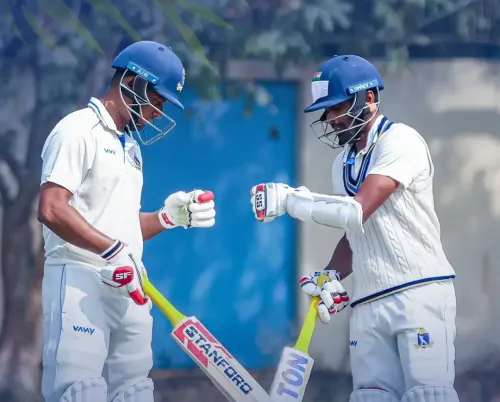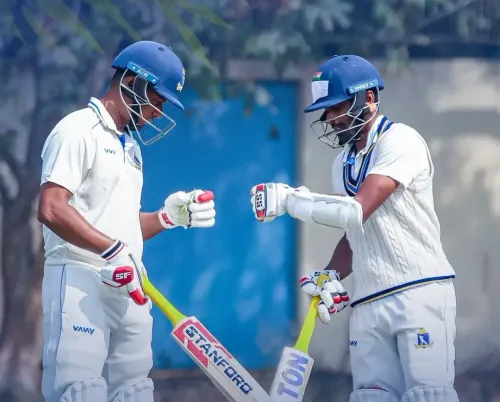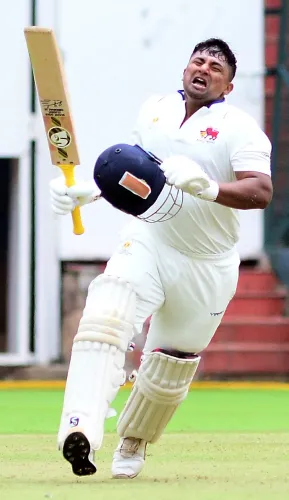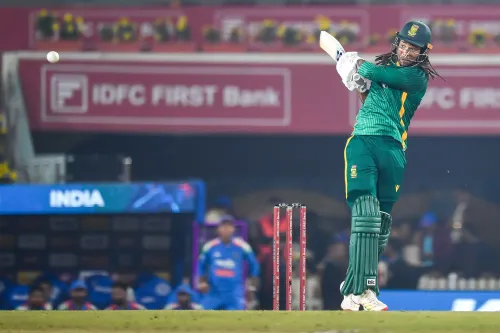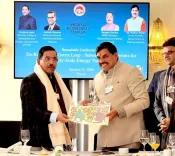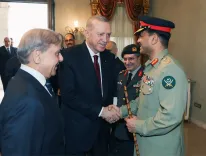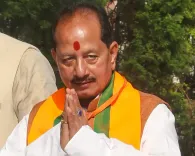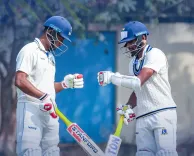Sangram Singh Advocates for Grassroots Sports Development at the 38th National Games
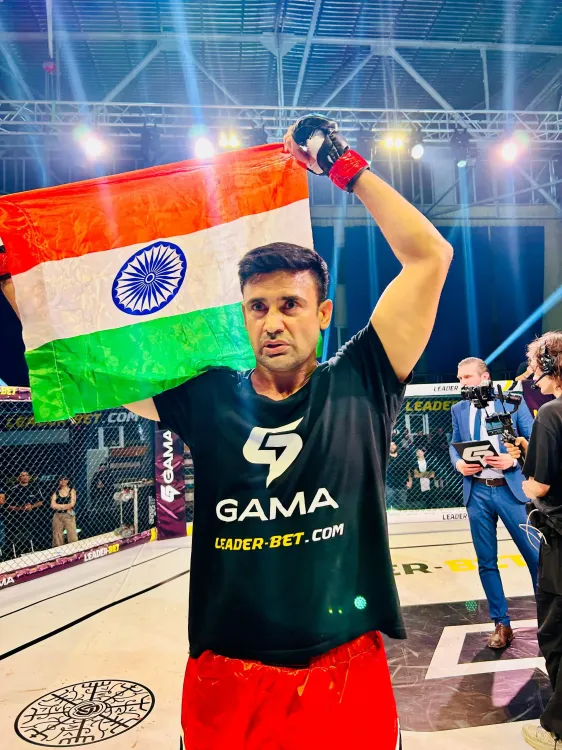
Synopsis
Key Takeaways
- Sangram Singh mentors young athletes at the 38th National Games.
- Success in sports is rooted in perseverance and dedication.
- Grassroots development is crucial for enhancing Indian sports.
- Young athletes should avoid distractions from social media.
- Sports federations need knowledgeable professionals, not politicians.
New Delhi, Feb 3 (NationPress) Former wrestler and current MMA fighter Sangram Singh has embraced a new responsibility as a mentor during the 38th National Games taking place in Dehradun. In this role, he is inspiring over 10,000 young athletes through motivational talks, sharing personal experiences, and providing advice on achieving excellence in both sports and life.
Reflecting on his journey, Sangram recalled his participation in the 2002 National Games at the age of 18. Two decades later, he has returned—not as a competitor, but as a mentor, committed to nurturing the next wave of champions.
His motivational talk emphasized the theme “Champion Mindset: Elevate from Good to Great.” Sangram asserts that true success in athletics is more than merely winning medals; it is rooted in perseverance, positivity, and ongoing self-improvement. “A champion is not solely defined by the medals or trophies won but also by the ability to persist and maintain a positive outlook—both in sports and in life,” Sangram Singh expressed to IANS.
He stressed that no trophy, accolade, or degree can dictate an athlete's future; only hard work and dedication can. “Among the 10,000 competing athletes, only 300 will earn medals. This doesn’t imply that the others have failed. Every athlete is a champion in their own right.”
Sangram pointed out the urgent need for enhanced grassroots development within Indian sports. He highlighted that despite substantial investments in sports infrastructure, much of the true talent still emerges from rural areas, where children are often unaware of professional training centers like the Sports Authority of India (SAI).
“A significant portion of India's sporting potential is neglected in villages due to a lack of information. Many aspiring athletes abandon their dreams because they lack guidance. Real progress must begin at the foundational level.”
He asserted that India's aspiration to host the Olympics in 2036 can only be realized if the current generation of young athletes is provided with the appropriate environment and support to excel.
A strong proponent of discipline and dedication, Sangram cautioned young athletes about the adverse impacts of social media and distractions. “Social media can be beneficial, but it also diverts young athletes' focus from training. They spend more time on their devices than honing their skills. I advise them to ‘fast from gadgets’ instead of food—if you eliminate distractions, you will advance in life.”
Discussing the state of sports administration in India, Sangram emphasized the necessity for sports federations to be led by knowledgeable and experienced professionals rather than politicians. “In Russia, Olympic champions are coached by individuals who have achieved only state-level medals. Why? Because their focus is on the athlete’s development, not on political matters. India requires the right individuals in leadership roles, not merely politicians or business executives.”
He also stated that athletes should steer clear of politics until their careers conclude and focus on nurturing the next generation instead. “A player should refrain from entering politics while still competing. Their primary goal should be to train future champions. Once you delve into politics, you lose sight of the main objective—advancing Indian sports.”
Sangram Singh is committed to mentoring young athletes, aiding them not just in technical skills but also in building mental and emotional strength. He believes India has the potential to evolve into a sports powerhouse, provided that the correct initiatives are taken at the grassroots level.
Interestingly, he disclosed plans to make a return to Mixed Martial Arts (MMA) despite being in his 40s. He is slated to re-enter the professional MMA arena in February 2025, with a highly awaited match set to unfold in the United States, marking his comeback after a historic win in MMA.
Singh made history as the inaugural Indian male wrestler to triumph in his MMA debut, defeating Pakistani fighter Ali Raza Nasir. With a remarkable background as a former Commonwealth heavyweight wrestling champion, his return to MMA is anticipated to generate considerable buzz.
“At this stage, sports and television are the only domains I understand. If MMA presents an opportunity, I will seize it. Hard work surpasses talent. If you are passionate about your sport, invest your all. Wealth, recognition, and success will follow. Concentrate on your training, maintain discipline, and avoid distractions—because champions are crafted, not born.”


